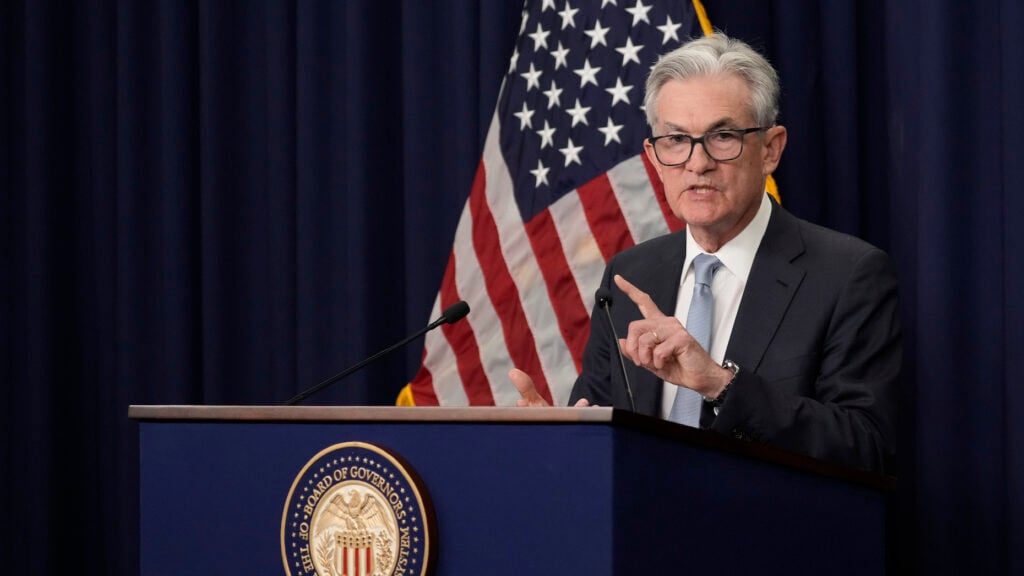In a shifting real estate market, the guidance and expertise that Inman imparts are never more valuable. Whether at our events, or with our daily news coverage and how-to journalism, we’re here to help you build your business, adopt the right tools — and make money. Join us in person in Las Vegas at Connect, and utilize your Select subscription for all the information you need to make the right decisions. When the waters get choppy, trust Inman to help you navigate.
Real estate agents fear further interest rate hikes by the Federal Reserve will accelerate a transitioning market in which they’re seeing homes take longer to sell, less competition and in some cases price reductions.
But several economists actually had some good, if temporary, news on the day that the Fed made its biggest rate hike in nearly three decades.
Matthew Gardner | Windermere
“The question is: Is the likelihood of future increase in rates pushing mortgage rates even higher? I’m not seeing that,” Matthew Gardner, chief economist at Windermere, told Inman.
The Fed’s move on Wednesday was anticipated, and the markets made proactive adjustments that sent mortgage rates surging above 6 percent before the meeting. And because there’s not a direct connection between federal fund rate and long-term interest rates, multiple economists suggested mortgage rates could take a slight dip on Wednesday’s news in a temporary bright spot for agents wary of a shifting market.

Taylor Marr | Redfin
“My initial reaction is that this will provide immediate relief for housing and mortgage rates in the short-term,” Taylor Marr, deputy chief economist at Redfin, said in a statement to Inman.
Multiple economists said they’re keeping their eye on the Federal Reserve’s ability to quickly tamp down inflation, including by possibly making another big rate hike when it meets again in July. They also predicted the market has either already sent rates to a short- or mid-term peak.
“With mortgage rates and other long-term interest rates surging before this Fed meeting, we may, somewhat paradoxically, see rates ease somewhat in the days following the Fed’s hike,” said Realtor.com chief economist Danielle Hale.
Mortgage rates are closely tied to the 10-year Treasury yield, with mortgage rates lately running about 2.5 percentage points higher than the 10-year yield. The 10-year yield eased slightly to 3.4 percent Wednesday, indicating that mortgage rates may not continue climbing in the near term.
However, if the Fed isn’t able to pull out what it calls a “soft landing” — or the rare instance where it can cool the economy by rising rates without sending it into a recession — the housing market could suffer long term.
“Because economic growth expectations were lowered by the Fed and unemployment is expected to be higher,” Marr added, “we could see a long term effect in the housing market over the next year.”
The industry has been bracing for the impact that mortgage rates — which have risen more than two percentage points this year — will inevitably have.
Real estate companies have begun shedding staff, with Compass and Redfin moving on Tuesday to shed 10 percent and 8 percent of their employees. That’s in addition to layoffs at a handful of other industry players in recent months.
Real estate agents are figuring out how they’ll succeed in such a rapidly-changing landscape.
“I work in a pretty broad area, pretty much all of Oregon and some of California,” said Greg Messick with Realty Net. “It’s affecting the markets consistently all over the place.”

Greg Messick | Realty Net
“We’re definitely in a transitioning market right now,” he added. “It’s inflation, rates, the market is going to change, it’s changing quickly and I think most people think the rates are going to continue to go higher.”
Realtor.com has already adjusted its home sales forecast downward as rates rose more than 2 percent in six months.
“In my 30-plus years as an analyst, my firm has never documented this serious and fast a correction in the market,” Patrick Veling, an industry analyst and consultant with Real Data Strategies. “Too few brokers and agents are talking about it with sellers and buyers, but they are most certainly discussing it amongst themselves.”
“The biggest challenge for agents and brokers is to have difficult discussions with sellers who are in a market mindset of sixty days ago,” Veling added. “The next biggest challenge is for agents to counsel their buyers that timing 30-year mortgage interest rates is much easier than timing market values.”
The Fed has hiked the short-term federal funds rate three times since March 17, by a total of 150 basis points, or 1.5 percentage points. Since the Fed’s first rate increase, rates on 30-year fixed mortgages have climbed by about the same amount — 155 basis points through June 14, according to the Optimal Blue Mortgage Market Indices.
But mortgage rates started climbing well before that, when the Fed warned last fall it would soon begin tapering the support it provided to mortgage markets during the pandemic to keep interest rates low. Since then, rates on 30-year fixed-rate mortgages have increased by nearly 3 percentage points, driving up the typical monthly payment by more than 50 percent, economists said.

Lawrence Yun | NAR
“On the same $300,000 mortgage, the monthly payment has risen from $1,265 in December to $1,800 today,” NAR chief economist Lawrence Yun said in a statement. “That’s painful and, consequently, will shrink the buyer pool.”
Not only that, but rising costs of lending and borrowing could lead into longer-term issues around homebuilding, home prices, monthly mortgage payments and rent.
“Higher rents are due to a lack of housing supply,” according to Robert Dietz, chief economist for the National Association of Home Builders. “Higher interest rates will make it difficult to finance the development of additional housing supply.”
Indeed, builder confidence fell to its lowest point since June 2020, the indicator’s sixth straight month of decline and “a clear sign of a slowing housing market,” according to the National Association of Home Builders.
So while there may be temporarily good news for homesellers and buyers despite the Fed’s action, there will be ongoing pain until inflation and other factors are under control.
“Only when consumer price inflation tops out and starts to fall will mortgage rates stabilize or even decline a bit,” Yun said. “That is why providing additional oil supplies will be critical in containing consumer prices and interest rates.”
Email Taylor Anderson



 Are You Interested in West Eleventh Residences Miami?
Are You Interested in West Eleventh Residences Miami? Are You Interested in ONE Park Tower by Turnberry?
Are You Interested in ONE Park Tower by Turnberry? Are You Interested in Diesel Wynwood Condominium?
Are You Interested in Diesel Wynwood Condominium? Are You Interested in Five Park Miami Beach?
Are You Interested in Five Park Miami Beach? Are You Interested in Cipriani Residences Miami?
Are You Interested in Cipriani Residences Miami? Are You Interested in Bentley Residences Miami?
Are You Interested in Bentley Residences Miami? Are You Interested in Baccarat Residences Brickell?
Are You Interested in Baccarat Residences Brickell? Are You Interested in Aria Reserve Miami?
Are You Interested in Aria Reserve Miami? Are You Interested in 888 Brickell Dolce & Gabbana | Miami?
Are You Interested in 888 Brickell Dolce & Gabbana | Miami? Are You Interested in 600 Miami WorldCenter?
Are You Interested in 600 Miami WorldCenter? Are You Interested in HUB MIAMI RESIDENCES?
Are You Interested in HUB MIAMI RESIDENCES? Are You Interested in WALDORF ASTORIA RESIDENCES?
Are You Interested in WALDORF ASTORIA RESIDENCES?